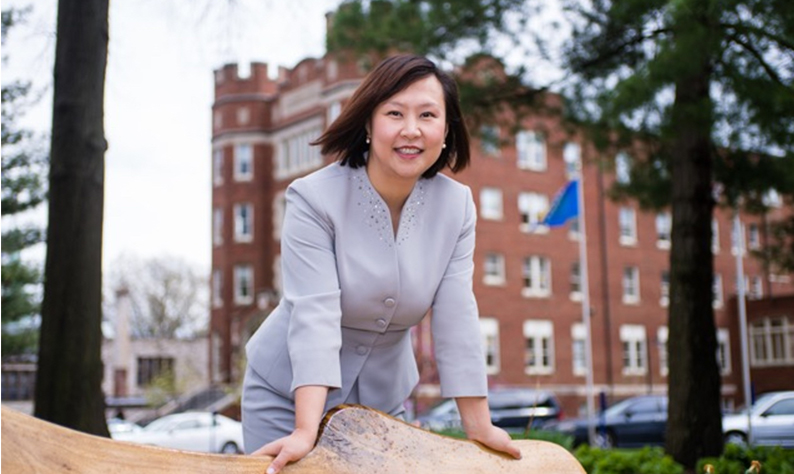Education Doctorate Students, Director Websites Offer Scholarly Resources
December 16, 2020

The Doctor of Education (EdD) Program in the Webster University School of Education has admitted the largest cohort of new students since its inception in 2015, and students in the program have created public resources that can help them engage with others and help prospective students get a feel for the program.
Of the 17 doctoral students who began this fall, a cohort of 12 are in the Transformative Learning in the Global Community emphasis. This group created professional websites in their first course, EDOC 7120 Global Histories and Politics in Education, under the guidance of Prof. Yin Lam Lee-Johnson, the director of the EdD program.
Three-Fold Objective
The objective of these websites is three-fold:
- for doctoral students to engage in a process of reflection and reflexivity, so as to find their professional voice in academia and to reflect upon the epistemology and ontology of educational structures,
- to begin a dialogic and dialectic journey with intersectionality, positionally, and intellectual conversations with the theories, philosophies and contemporary social movements that they are interested in, and
- to create networking opportunities with scholars and colleagues for collaborative research and academic socialization.
By sharing these websites with the Webster community, Lee-Johnson would like to help new doctoral students connect with potential dissertation chairs and committee members in their dissertation projects. Most importantly, the websites provide opportunities for new doctoral students to establish their digital presence and professional voice as emergent scholars in their fields.
Lee-Johnson also shared her own website, which presents her recent research projects, publications, and personal stories as an immigrant, mother-scholar and an educational researcher.
The EdD admits new students every even year. Learn more information about Webster's EdD program and feel free to contact the School for more.
Websites
Links to their websites and a brief overview of their research interests appear below:
Yin Lam Lee-Johnson, professor and director
Amanda Barton, doctoral student: Research goals to explore and share information about the Post-Secondary Transition Opportunities for Individuals with higher academic achievement with phasing mobility and communicative or assistive technology obstacles.
Anne Browning, doctoral student: Research interests center around high impact experiential learning, particularly in a global context.
Trezette Dixon, doctoral student: Research interest is racial equity, systemic barriers and internships impact on career success.
Kerri Fair, doctoral student: Research will center around teacher professional development interests stemming from her background as a reading specialist/literacy coach and principal.
Vincent C. Flewellen: Applying years of work promoting diversity, equity and inclusion in education.
Jessica Hanses: Exploring the values and perspectives in adult education immigrant and refugee literacy programs with specific emphasis paid to the intercultural and cross-cultural communication practices and competencies developed once a critical media literacy framework has been applied.
Katherine O'Connor: Research interests include media literacy, biracial representation in media, and worldview development.
Tamara Rodney: When I think of my intersectionality I think of my race: Black, my gender: female and my faith/religion: Islam. I am also a proud mother of three and a wife to one. Professionally, I remain an educator. More specifically an educator of high schools students with a focus on English Language Arts (ELA).
Melissa Schmuke: A kindergarten teacher whose passion lies in early childhood education.
Ashley Spencer: Pursuing pedagogical understanding that can be applied to the elementary classroom in order to support the education, individuality, and development of self for marginalized populations, specifically immigrant families and English Language Learners.
Jonathon Singler: Building community-based chess programs that use the game as a tool for self-psychotherapy and research.
